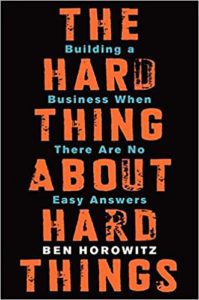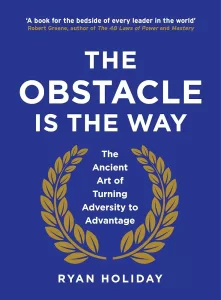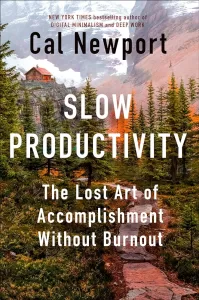Book Review: “The Hard Thing About Hard Things”
Book: The Hard Thing About Hard Things by Ben Horowitz
Reviewer: Bobby Powers
My Thoughts: 10 of 10
Venture capitalist and former CEO Ben Horowitz believes that executives should shoot straight with their teams, and he models that behavior in this book. This is a hard-punching, brash, honest guidebook for startup CEOs. Horowitz begins the book with the sentence, "Every time I read a management or self-help book, I find myself saying, 'That's fine, but that wasn't really the hard thing about the situation.'" Then he proceeds to talk about all of the most difficult aspects of leadership: navigating layoffs, demoting and firing friends, deciding how much to share with employees when your company has 30 days of cash left, etc. Horowitz delivers what we need to hear rather than what we want to hear: complexity rather than simplicity, tough love rather than softness.
What I Learned from the Book
No startup coasts to success. Startup success is always an arduous uphill climb, and the road is littered with difficult decisions and the carcasses of businesses that weren't able to make it. But it's comforting to know that every startup experiences difficulty. It's encouraging to hear that struggle doesn't mean your company won't succeed--it just means that you're experiencing the same gauntlet that every other startup has faced.
Selected Quotes and Ideas from the Book
The Difficulty of Being a Startup CEO
- "The hard thing isn't setting a big, hairy, audacious goal. The hard thing is laying people off when you miss the big goal...The hard thing isn't dreaming big. The hard thing is waking up in the middle of the night in a cold sweat when the dream turns into a nightmare."
- "There are no shortcuts to knowledge, especially knowledge gained from personal experience. Following conventional wisdom and relying on shortcuts can be worse than knowing nothing at all."
- "It's the moments where you feel most like hiding or dying that you can make the biggest difference as a CEO."
- "Most people are not strong enough. Every great entrepreneur from Steve Jobs to Mark Zuckerberg went through the Struggle and struggle they did, so you are not alone. But that does not mean that you will make it. You may not make it. That is why it is the Struggle. The Struggle is where greatness comes from."
- "As a technology startup from the day you start until your last breath, you will be in a furious race against time. No technology startup has a long shelf life."
Building Your Business
- "When you are building a company, you must believe there is an answer and you cannot pay attention to your odds of finding it. You just have to find it. It matters not whether your chances are nine in ten or one in a thousand; your task is the same."
- "Most business relationships either become too tense to tolerate or not tense enough to be productive after awhile. Either people challenge each other to the point where they don't like each other or they become complacent about each other's feedback and no longer benefit from the relationship."
- "[W]hen you are a startup executive, nothing happens unless you make it happen. In the early days of a company, you have to take eight to ten new initiatives a day or the company will stand still. There's no inertia that's putting the company in motion."
Communication
- "In any human interaction, the required amount of communication is inversely proportional to the level of trust. Consider the following: If I trust you completely, then I require no explanation or communication of your actions whatsoever, because I know that whatever you are doing is in my best interests. On the other hand, if I don't trust you at all, then no amount of talking, explaining, or reasoning will have any effect on me, because I do not trust that you are telling me the truth."
- "Perhaps the CEO's most important operational responsibility is designing and implementing the communication architecture for her company."
- "As a company grows, communication becomes its biggest challenge. If the employees fundamentally trust the CEO, then communication will be vastly more efficient than if they don't. Telling things as they are is a critical part of building this trust."
- "Don't put it all on your shoulders. It is easy to think that the things that bother you will upset your people more. That's not true. The opposite is true. Nobody takes the losses harder than the person most responsible. Nobody feels it more than you. You won't be able to share every burden, but share every burden that you can. Get the maximum number of brains on the problems even if the problems represent existential threats."
- "A healthy company culture encourages people to share bad news. A company that discusses its problems freely and openly can quickly solve them. A company that covers up its problems frustrates everyone involved. The resulting action item for CEOs: Build a culture that rewards--not punishes--people for getting problems into the open where they can be solved."
- "If you run a company, you will experience overwhelming psychological pressure to be overly positive. Stand up to the pressure, face your fear, and tell it like it is."
The Importance of Training
- "Ironically, the biggest obstacle to putting a training program in place is the perception that it will take too much time. Keep in mind that there is no investment that you can make that will do more to improve productivity in your company. Therefore, being too busy to train is the moral equivalent of being too hungry to eat."
- "A lot of companies think their employees are so smart that they require no training. That's silly."
- "Training is, quite simply, one of the highest-leverage activities a manager can perform." -Andy Grove
- "Take your best people and encourage them to share their most developed skills. Training in such topics as negotiating, interviewing, and finance will enhance your company's competency in those areas as well as improve employee morale. Teaching can also become a badge of honor for employees who achieve an elite level of competence."
- "[N]o startup has time to do optional things. Therefore, training must be mandatory."
Think you’d like this book?
Other books you may enjoy:
What You Do Is Who You Are by Ben Horowitz
Straight Talk for Startups by Randy Komisar and Jantoon Reigersman
Zero to One by Peter Thiel with Blake Masters
Other notable books by the author:
What You Do Is Who You Are





